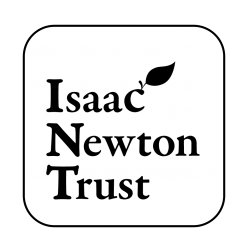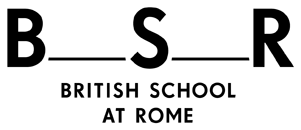| 5 Jul 2019 | 10:30am - 5:30pm | S1, Alison Richard Building, Sidgwick Site | |
- Description
- Programme
Description
This Study Day brings together researchers from fields including Dante Studies, Medieval Studies, Theology, and Music to explore the roles and uses of lyric and liturgy in Dante’s Commedia. What happens when Dante inserts portions of lyric or liturgical texts into the Commedia— either when he quotes a text verbatim, or when he alludes to or reworks a text?
We will consider issues including ones relating to voice, readership, temporality, dialogue between texts, and between texts and the contexts in which they are known and lived.
Among the questions we will investigate: Whose voice or voices perform these texts? What sort of engagement does Dante invite of the reader? What happens to our understanding of relationships between texts if we conceive texts less as isolated entities and instead as embedded in various contexts and types of lived experience? How do the temporalities of lyric and liturgy relate to the temporalities of narrative, reading, and writing?
We hope the day will be above all an occasion for dialogue; papers will be 5-10 minutes, with a large proportion of the time dedicated to discussion. Lunch and refreshments will be provided and the event will conclude with sung medieval vespers.
This event is now fully booked.
Supported by the Isaac Newton Trust, the Centre for Research in the Arts, Social Sciences and Humanities (CRASSH), and the British School at Rome.



Programme
| 10.30-11.00 | Registration and coffee |
| 11.00-11.15 | Introduction |
| 11.15-12.45 | Session 1: Liturgical practice Respondents: George Corbett (St Andrews) and Matthew Treherne (Leeds) Robin Kirkpatrick (Cambridge), ‘Liturgy as the truest work of truth, with reference, especially, to Paradiso 22’ Matthew Cheung Salisbury (Oxford), ‘How (not) to do things with the liturgy’ Ambrogio Camozzi Pistoja (Harvard), ‘Eucharistic Liturgy in Convivio and Paradiso: Texts and Norms’ Rachel Teubner (Australian Catholic University), ‘Turning to the liturgy: humility and poetry in Ante-purgatory’ |
| 12.45-13.45 | Lunch |
| 13.45-15.15 | Session 2: Textual pasts Respondents: Catherine Keen (UCL) and Heather Webb (Cambridge) Tristan Kay (Bristol), ‘Lyric Fragments in the Comedy between Condemnation and Recuperation’ Cristina Penna (Pavia), ‘Dante reading Dante. A reflection over past literary experiences between Inferno and Purgatorio’ Emma Wall (Durham), ‘Voice and Textual Perspective: Lyric in Dante’s Commedia’ Leyla Livraghi (Frankfurt), ‘Towards a new poetical style on the shores of Purgatory: combining the ‘dolce stil novo’ with the spiritual sweetness of the Psalms’ |
| 15.15-15.45 | Tea break |
| 15.45-17.15 | Session 3: Lyrical Liturgy-Liturgical Lyric Respondents: Nicolò Maldina (Edinburgh) and Vittorio Montemaggi (King’s College London) Stephen C. Pepper (Cambridge), ‘Contemporaneity with the Saints: The Role of Litany on the Terrace of Envy (Purg.13.49-51)’ Jennifer Rushworth (UCL), ‘Is there such a thing as lyric acedia?’ Michael Biasin (Reading), ‘Dante and the laude: vernacular poetry within a liturgical context’ Thomas Graff (Cambridge), ‘“‘Glorïa in excelsis’ tutti ‘Deo’”: Suspension and the Liturgical Transformation of Desire on the Terrace of Avarice’ |
| 17.15-17.30 | Concluding remarks and ongoing questions |
| 18.00-18.30 | Enactment of a thirteenth-century service of Vespers in Queens’ College Chapel (by kind permission of the President and Fellows) |
| 18.30-19.30 | Drinks reception |

